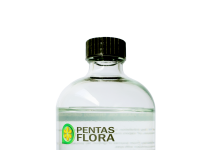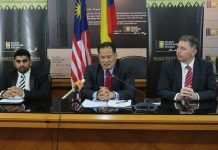Amendments to the EU’s Renewable Energy Directive (RED) are making their way through the legislative process in Brussels. The RED presents a huge issue for Malaysia, specifically for its palm oil exports, because the European Parliament intends to ban palm oil biofuels from 2021 – last year, its Environment Committee and the Industry, Research and Energy Committee voted for the ban.
Brussels uses the RED as its main tool in regulating the biofuels sector. The objective is to highlight the EU’s use of renewable energy to reduce greenhouse gas emissions, and contribute to the region’s strategy to mitigate climate change. As part of this effort, the use of biofuels and other renewable energy sources is being promoted.
The move to ban palm oil biofuels has been led by multiple protectionist Members of the European Parliament (MEPs), with Dutch Greens MEP Bas Eickhout and Spanish Socialist MEP José Blanco López at the forefront.
The European Parliament’s protectionist position was confirmed on Jan 17, 2018 with 492 MEPs in favour of banning palm oil biofuels, 88 against and 107 abstentions. All other oilseeds will continue selling within the EU until at least 2030.
It has been heartening, however, to note that Malaysia received support from many quarters in Europe. The UK Conservative MEPs – part of the governing party of Prime Minister Theresa May – voted against the ban. In a statement confirming their stance, they said they ‘could not support an arbitrary ban on palm oil, which will have an inflationary effect on food prices and cause significant economic damage to developing countries’.
UK Conservative MEP Daniel Hannan, in a speech during the plenary, criticised other MEPs for wanting to ban palm oil: “The reality is that this is a vote driven by the interests of rapeseed producers here in Europe, specifically the biofuels industry at home.”
In addition, 57 MEPs from Europe’s largest political party – the centre-right European People’s Party – proposed an amendment to remove the clause on the palm oil ban.
Following the vote, Malaysia’s International Trade and Industry Minister Dato’ Sri Mustapa Mohamed said the ban is a “potential violation of World Trade Organisation rules”. Plantation Industries and Commodities Minister Datuk Seri Mah Siew Keong referred to it as “akin to crop apartheid”.
Protest in KL
On Jan 16, more than 2,000 Malaysian smallholders took to the streets of downtown Kuala Lumpur to protest the ban. As the event unfolded, photos, videos and comments were uploaded by advocacy groupfacesofpalmoil.org, which also posted tweets.
A delegation of smallholders and MPOC officials hand-delivered a petition at a meeting with H.E. Maria Castillo Fernandez, the EU Ambassador to Malaysia. The petition was backed by 320,047 signatures collected from smallholders nationwide. The delegation relayed the message that millions of Malaysians would be affected by such an unfair and discriminatory ban.
The Ambassador attempted to appease the group by saying that there is no ban on palm oil. However, many in the delegation felt otherwise. They based their stance on a press release by the European Parliament, which states that ‘MEPs want a ban on the use of palm oil from 2021’. Furthermore, during debates on the RED, words such as ‘ban’, ‘phase out’ or ‘stopping palm oil’ were repeatedly used.
Almost all the representatives of the smallholders spoke up during the meeting. Among them was Tuai Rumah Thomas Lamet, representing the Sarawak Land Consolidation and Rehabilitation Authority. He urged the Ambassador and the EU not to penalise innocent people, describing this as “cruel”. He said the ban would deprive them of a good life and create social problems because “oil palm [cultivation] sustains their life.”
The Ambassador was further told that negative comments and claims made against the palm oil industry had affected the interests of smallholders. She then agreed to raise their concerns with the European Parliament, EU Council (made up of governments) and European Commission.
The protest generated widespread publicity in major European cities and in Malaysia. It drew attention to the problems that 650,000 smallholders would face, as they depend on palm oil to earn an income and provide for their families. The ‘Faces of Palm Oil’ campaign, supported by smallholder organisations in Malaysia, secured close to 100 articles in the international media in January.
Efforts remain in place to overturn the ban as the legislative process continues. A decision will be made in the coming months, in negotiations between the European Parliament, EU Council, and European Commission. The Malaysian palm oil sector must ensure that it keeps up the pressure, day after day.
Belvinder Sron
Deputy CEO
MPOC




